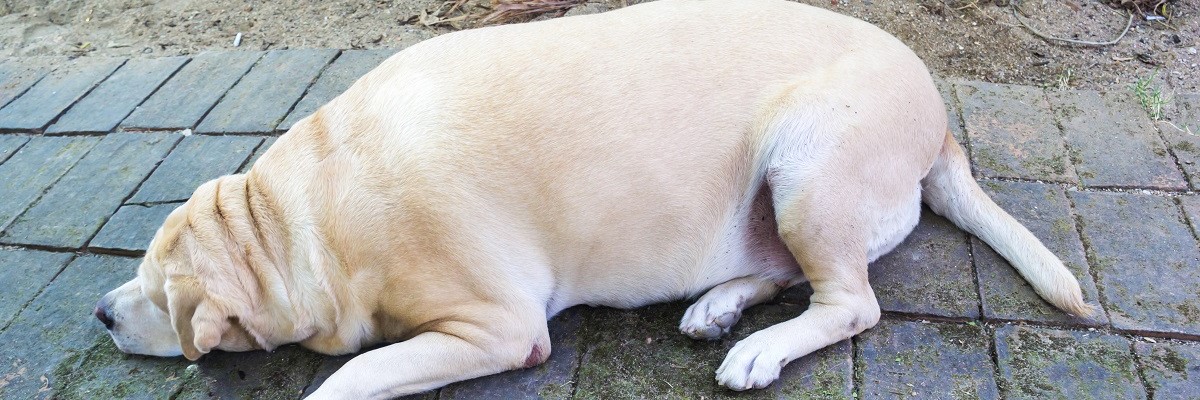The best way to determine if your Labrador is overweight is to have them weighed by your veterinarian. When your veterinarian weighs your dog, they can determine whether he is overweight. As part of the examination, your veterinarian will compare the shape of your Lab’s body to a chart ranking body types. There is typically a range of 1 to 9, with 1 representing extremely underweight and nine representing extremely overweight. There is typically an ideal body composition of four or five.
How Much Should A Labrador Weigh?
It is common for male Labradors to weigh between 60lbs and 80lbs, while female Labradors weigh between 55lbs and 75lbs. Some healthy Labradors weigh less or more than these averages, though. You should take the entire picture into consideration. In this article, we will discuss Labrador Retriever weight.
Muscle weighs more than fat on a volume-for-volume basis. As a result, it is worth keeping in mind that a very fit dog will have more muscle and might weigh more than a dog of the same size that is unfit. Due to these reasons, there isn’t a ‘rule of thumb for determining the weight of a Labrador adult. Unless they are grossly overweight or desperately thin, the dog’s weight may not be a reliable sign of their health.
So how do I know if my Labrador is overweight?
According to the Pet Obesity Project, more than half of all dogs in the United States are overweight or obese. Dogs who are overweight suffer from arthritis and have a shorter life expectancy. However, obesity has been linked to other diseases like cancer and hypertension in dogs.
Overeating, not getting enough exercise, or being ill can cause your Labrador to become overweight. When you suspect your Lab may be overweight, especially if weight gain is rapid, speak to your veterinarian. Dog owners are often not good judges of their dogs’ weight. For dogs to clean themselves, all parts of their bodies must be accessible to them.
Again, different body types result in different Labs being able to reach different parts of their bodies. So don’t immediately conclude your Labrador is overweight. With the diagram below, you can see how different perspectives should be considered when diagnosing a dog. This picture clearly shows that the “Ideal” dog in this photo has an abdomen that is round just before the legs. Even though there are no ribs visible on the sides, there is not much visible fat.

Reasons That Your Labrador Could Be Overweight
It’s time to uncover what might be causing your dog’s overweight or obesity after determining that your dog may be overweight.
| DIET |
|---|
| You should know that the amount of food and the portion size oLabradoreal you feed your Labrador affects the dog’s weight drastically. Researchers have found that dogs fed kibble are 1.2 times more likely to be obese than that fed fresh food. As well, having several small meals throughout the day can help you maintain a healthy weight, rather than having one large meal a day. The risk of obesity does not necessarily increase when treats comprise less than 10% of an individual’s total caloric intake. |
| AGE |
|---|
| Those between the ages of 6 and 10 have the highest risk of being overweight or obese, but this declines with age. |
| MOODAn obese Labrador was four times more likely to be depressed than a happy one. When dogs are depressed, they become inactive and withdrawn and change their eating and sleeping habits. |
|---|
| INACTIVITY |
|---|
| Just like humans, Labradors can become overweight or obese when their activity levels are low. Over seven hours of exercise a week, dogs are six times less likely to be obese than dogs who exercise less than four hours per week. |
| OVERALL HEALTH |
|---|
| A Labrador’s weight may be affected by an existing condition. They may not exercise due to a joint injury or be underweight or obese due to thyroid disease or metabolic disorder. You should also discuss your Lab’s ideal weight with your veterinarian, whether weight issues exist, and if an underlying health problem is at play. |

Treatment Of Obesity In Labrador
Obese pets must lose weight to maintain healthy body weight for life. Losing weight occurs when you consume fewer calories and exercise more. Protein and fiber stimulate metabolism and promote satiety, so a diet high in protein and low in fat promotes fat loss. Your veterinarian will advise you on how much to feed, how often to feed, and what types of foods to give your pet. Avoiding table scraps and choosing healthy treats are important! Provide green beans and other vegetables as a substitute for treats.
Exercise and diet are necessary for maintaining a healthy weight. Commercial and prescription foods are formulated for losing weight and keeping it off for dogs. Homemade diets are not generally nourishing enough.
Walking on a leash for thirty minutes each day (in ten-minute intervals) can be followed by outdoor games, treadmill training, or swimming. Dog daycares provide exercise and playtime for your pet two to three times per week.
Pet stores sell bowls that make dogs work for each morsel of food if they eat too quickly. This is one of the best tools for your dog. When he rolls the ball around, your dog will receive treats. It is best to change the diet gradually to avoid upsetting the digestive system. Unless your veterinarian tells you otherwise, feed 1/2 the new food with 1/2 the old food for seven days after purchasing your new food. After seven days, if you are satisfied with the food, you can feed it exclusively.
A labrador’s body weight should be checked every month during the first month of a weight management program to ensure that it is working. Pets can be weighed at most veterinary clinics without an appointment and are free of charge. Weight changes may require adjustments to the exercise and diet protocol.
Ensure that dietary changes are clearly explained to family and friends to prevent your Lab from consuming table scraps. Once your Lab has reached a healthy weight, a maintenance diet and exercise schedule should be followed for the rest of their life.

